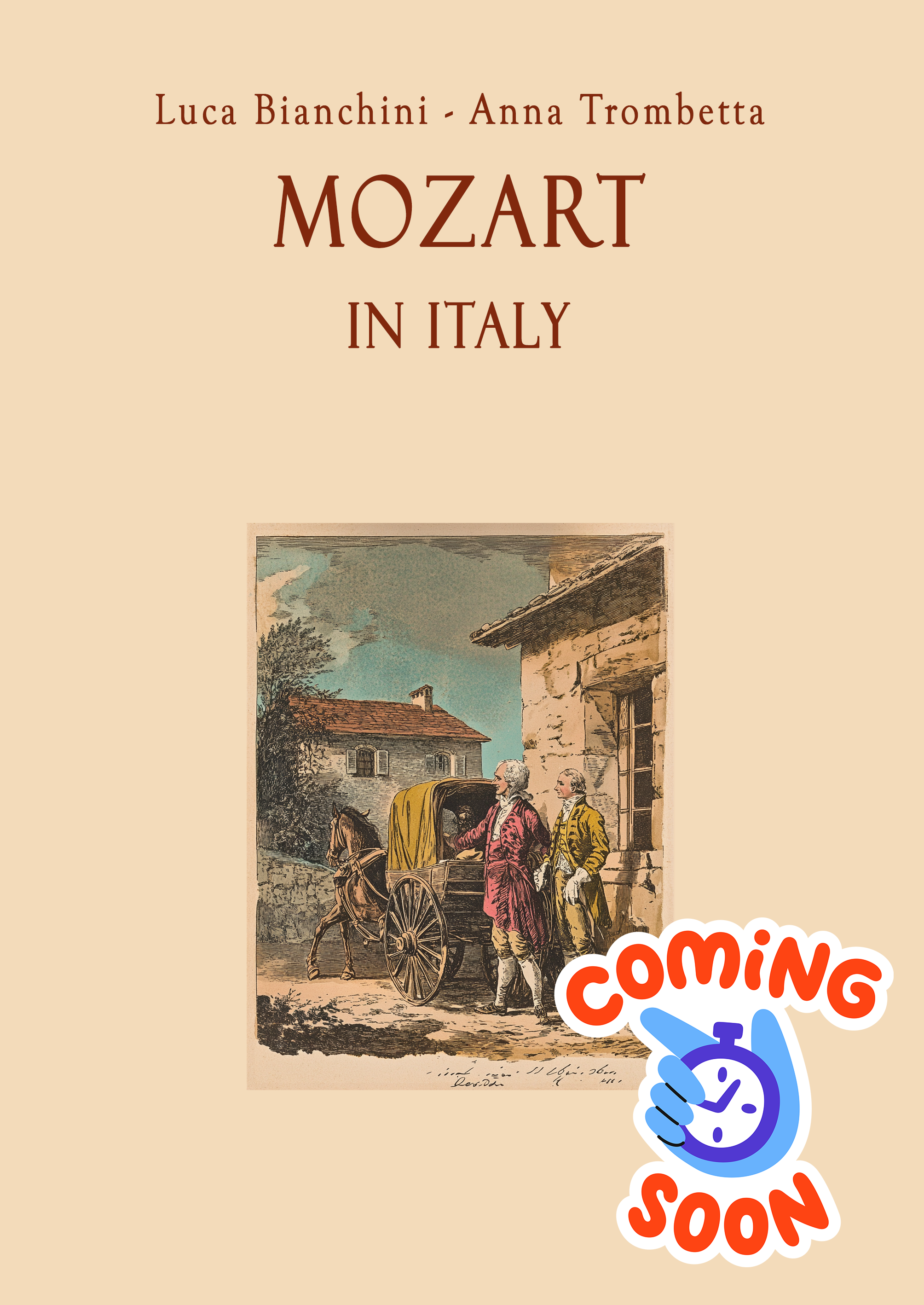A Modern Premiere
Quirino Gasparini’s Music Performed for the First Time
For the first time in modern history, Quirino Gasparini’s music has been performed. This concert, featuring arias from Mitridate and Beethoven’s Seventh Symphony, was conducted by Maestro Leonardo Muzii, with soprano Anastasiia Petrova.
Mozart in Italy
This book uncovers how Leopold Mozart ruthlessly controlled his son’s early career, focusing on how Mozart’s operatic successes were mere reproductions of existing works, especially the heavy borrowing from Quirino Gasparini.
It offers a unique look at their Italian travels, using original manuscripts and documents.
The online expansion includes rare audio, video, and manuscript access.
"Gasparini’s music, long overshadowed, takes its rightful place in the spotlight, revealing the true depth of his influence on Mozart."
@MozartrazoM
For the first time in modern history, the music of Quirino Gasparini, the composer whose works Mozart famously copied, has been performed. This extraordinary rediscovery is the result of the diligent musicological work of Luca Bianchini and Anna Trombetta, who have painstakingly revised and transcribed these forgotten compositions.
Conducted by Maestro Leonardo Muzii, the concert featured soprano Anastasiia Petrova, who performed arias from Mitridate by both Gasparini and Mozart, alongside Beethoven’s Seventh Symphony. The concert marked a pivotal moment in classical music, as Gasparini’s music returned to the stage, offering a new perspective on the history of 18th-century music.
This event is a must-see for lovers of classical music, revealing the influence that Gasparini had on Mozart and shining a light on a composer whose contributions have long been overshadowed.
You May Also Like
The Echo of the Pummerin Bell
The powerful resonance of the Pummerin bell in Vienna may have influenced Mozart’s compositions, particularly Sarastro’s arias in The Magic Flute.
The Hidden Influence of Joseph Boulogne, Chevalier de Saint-George
Joseph Boulogne, known as the “Black Mozart”, was shaping the future of music while Mozart was still struggling for recognition in Paris. But history has buried the significant influence Saint-George had on Mozart’s career, erasing his pioneering style from the narrative.
The Forgotten Viennese Quartets
Attributing Offertorium K.34 to Mozart is not just misleading, it reflects the careless methods used by 19th-century scholars to inflate his legacy. Without an autograph or solid evidence, this work should not be considered part of his output.”
Mozart’s Bassoon Concerto: A Question of Authorship
The Bassoon Concerto K.191 raises more questions than it answers. Long thought to have been composed for a Munich bassoonist, new evidence suggests Mozart had no clear performer in mind. The concerto’s disjointed movements and other dubious compositions attributed to Mozart add further complexity to his legacy
The Uncertain Origins of Mozart’s Early String Quartets
Mozart’s so-called “Milanese Quartets” (K.155, 158, and 159) have long been subject to debate, primarily due to their ambiguous instrumentation and structural weaknesses. Were these works part of a larger series of orchestral divertimenti, hastily repurposed as string quartets? The answer remains elusive, reflecting the young composer’s struggles to find his own voice.
Simplicity, Errors, and the Myth of Perfection
Mozart’s canons are not as complex as often claimed, with notable errors in K.553 and K.554, and the myth of “V’amo di cuore teneramente” K.348 being debunked.







